Low mileages, low prices, low running costs: the appeals of second-hand electric cars appear pretty compelling.
You can get yourself a low-mileage Renault Fluence saloon for as little as £3000, a quirky Renault Twizy for much the same and a Nissan Leaf for less than £6000.
These sums are for cars that cost a fraction of a fossil-fuelled motor to feed, can drive into polluted no-go zones, attract limited taxes and, at the very least, don’t locally pollute. If you fancy something more exotic, a BMW i3 can be on your drive from £14,000 and a Tesla Model S starts at around £46,000. But there are hazards ahead, and not just the wellknown issues of limited range and charge-point availability.
There are other things to be aware of. Apart from the obvious issue of whether most of your journeys fall within the range of the EV you’re considering, most revolve around the economics of an EV’s battery. Some are included in the original price of the car, as with BMW’s i models and the Teslas, while others come with a battery leasing deal that works on a monthly sliding scale of prices depending on your annual mileage. Most examples of the Nissan Leaf – easily the most common EV – and Renault Zoe fall into this latter category, although some owners will have bought the battery outright.
Leasing a battery isn’t cheap when you consider that you can have a brand new Renault Clio on a PCP for £149 a month with a £149 deposit. Even if you contain your travelling to 6000 miles per year and commit to the lease for three years, a Renault Zoe battery will cost you £59 per month, or £69 for the latest ZE40 Zoe that goes further on a charge.
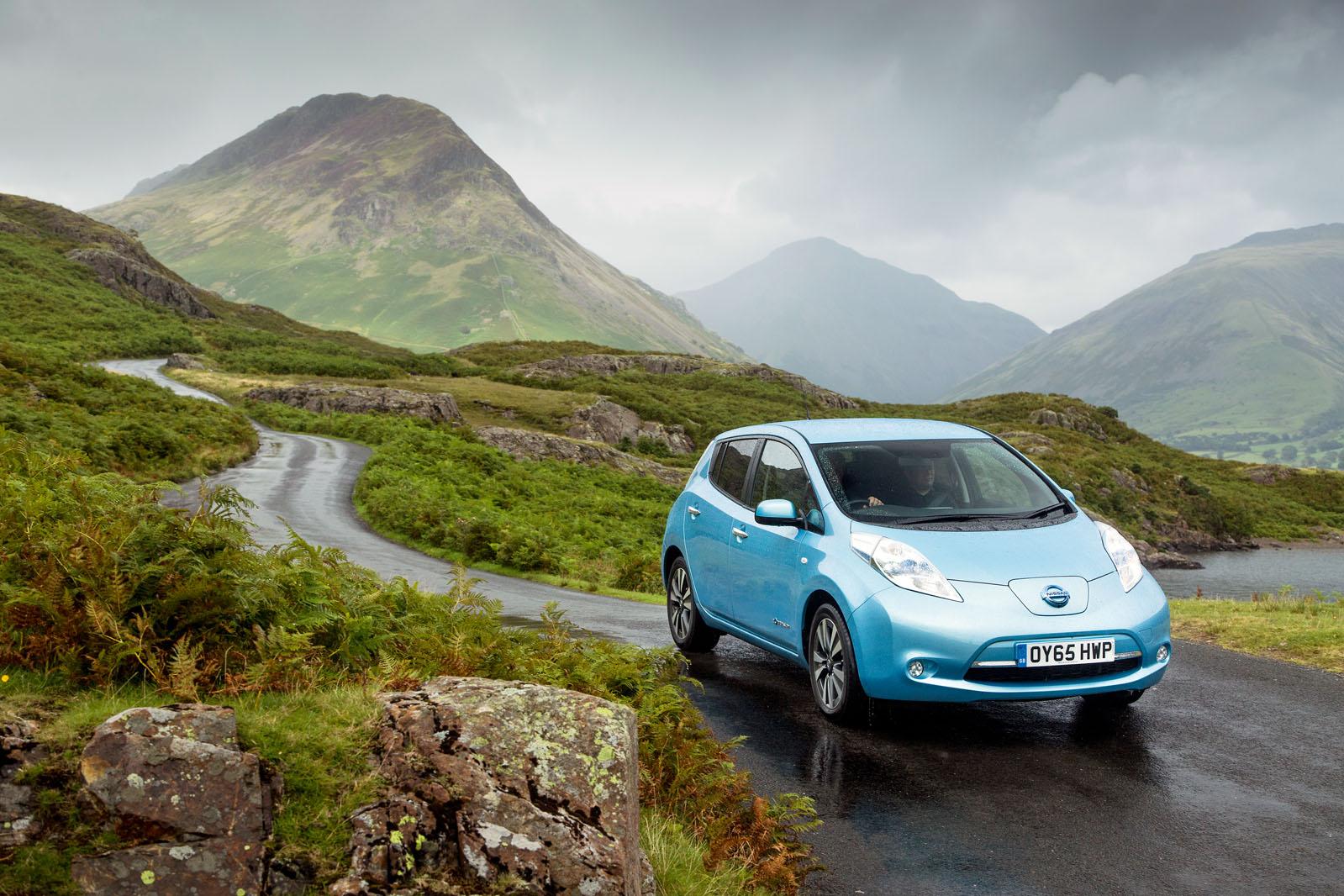
A Leaf costs £70 for 7500 miles per year regardless of whether it’s for a 22kWh or the newer 30kWh pack. That’s quite a lot to spend on a used car for which you might also be paying on a monthly basis. You must also factor in a domestic wallbox charger, which will cost £279 for a 3kWh unit, or £359 or £354 for 7kWh (from Podpoint and Chargemaster respectively) with a government grant. But there are compensations, including 2p-per-mile fuelling costs (according to Nissan and assuming a dual domestic tariff and overnight charging) and maintenance charges as much as 75% lower than a conventional car’s. Plus you’re driving a zero-emission vehicle.
Buying a car that includes the battery obviously means no monthly rental fees but also no means of easily replacing it. That said, EV battery life appears to be pretty robust, with the earliest Japanese-market Leafs giving up their batteries for a second life to provide electricity storage for the grid, although most UK-sold EVs are too young to have reached that point. When the battery pack does deteriorate to the point that the range is affected, the owner must weigh up whether it’s worth spending a sum greater than the car is worth to replace the battery, or scrapping a car that will otherwise have loads of life left in it, given that electric motors and gearboxes are good for hundreds of thousands of miles.

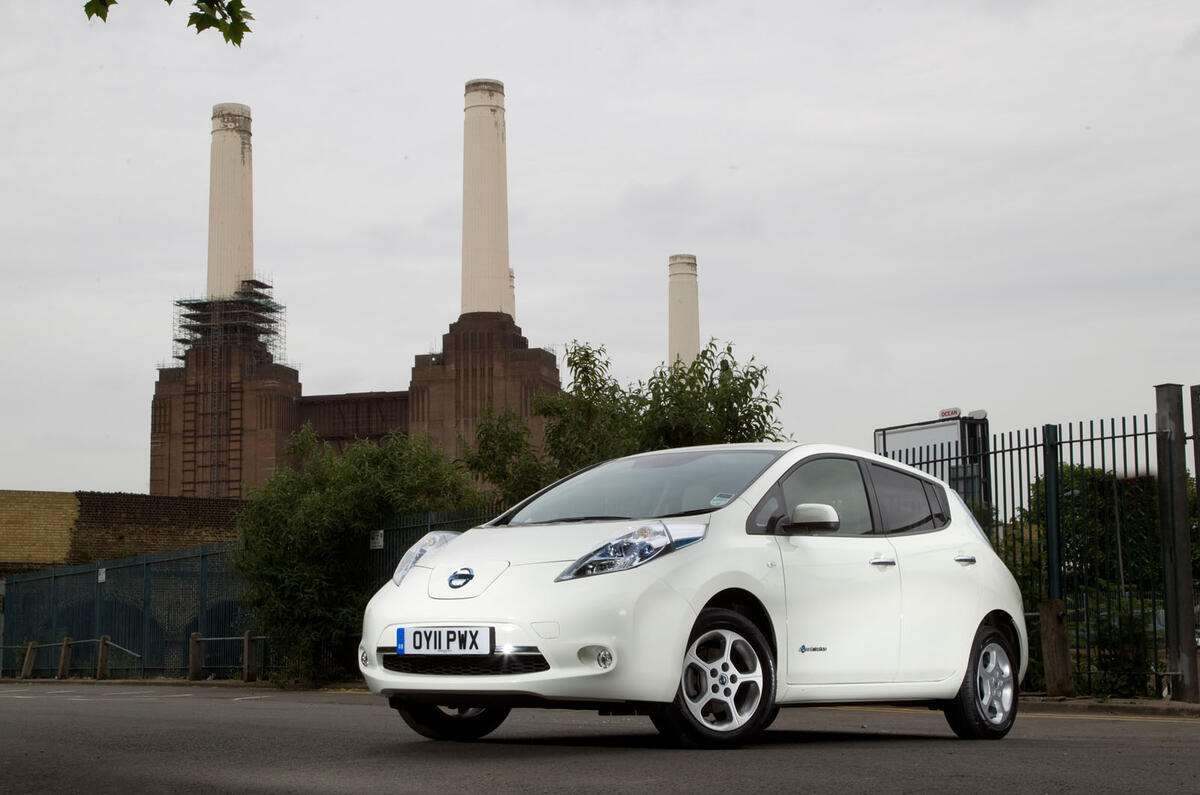
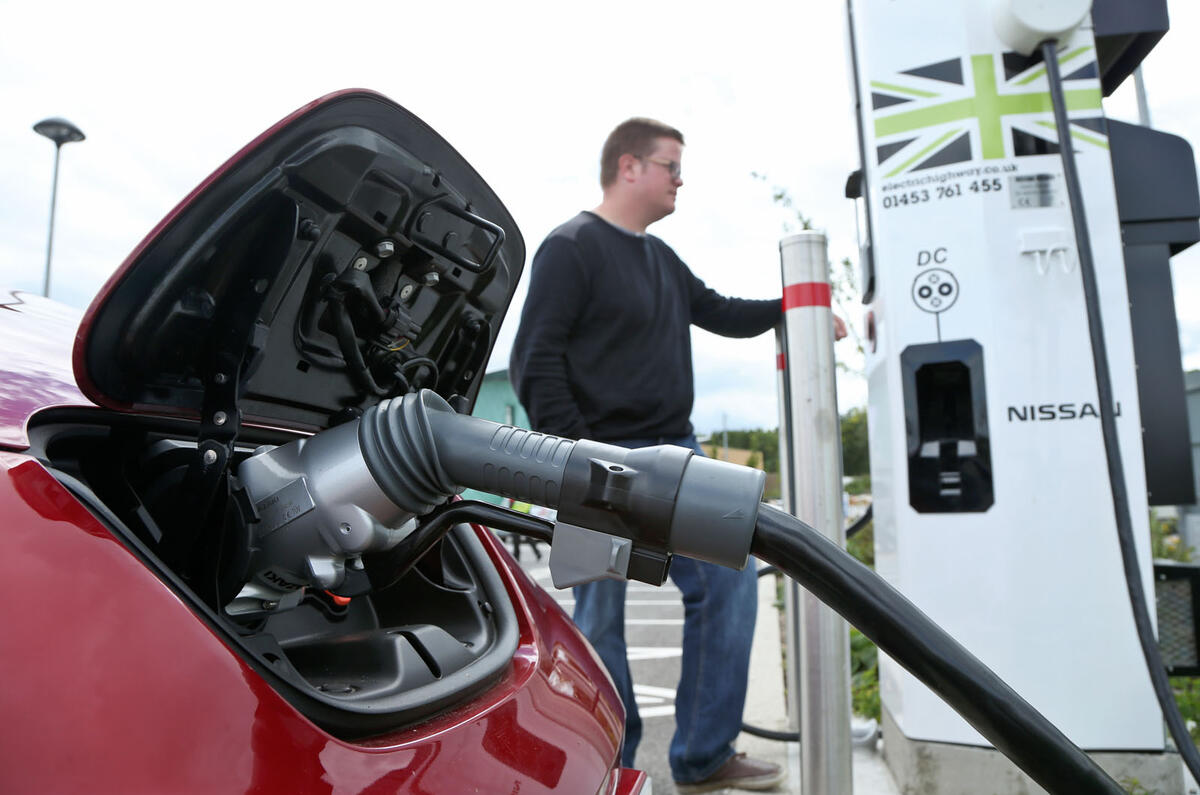
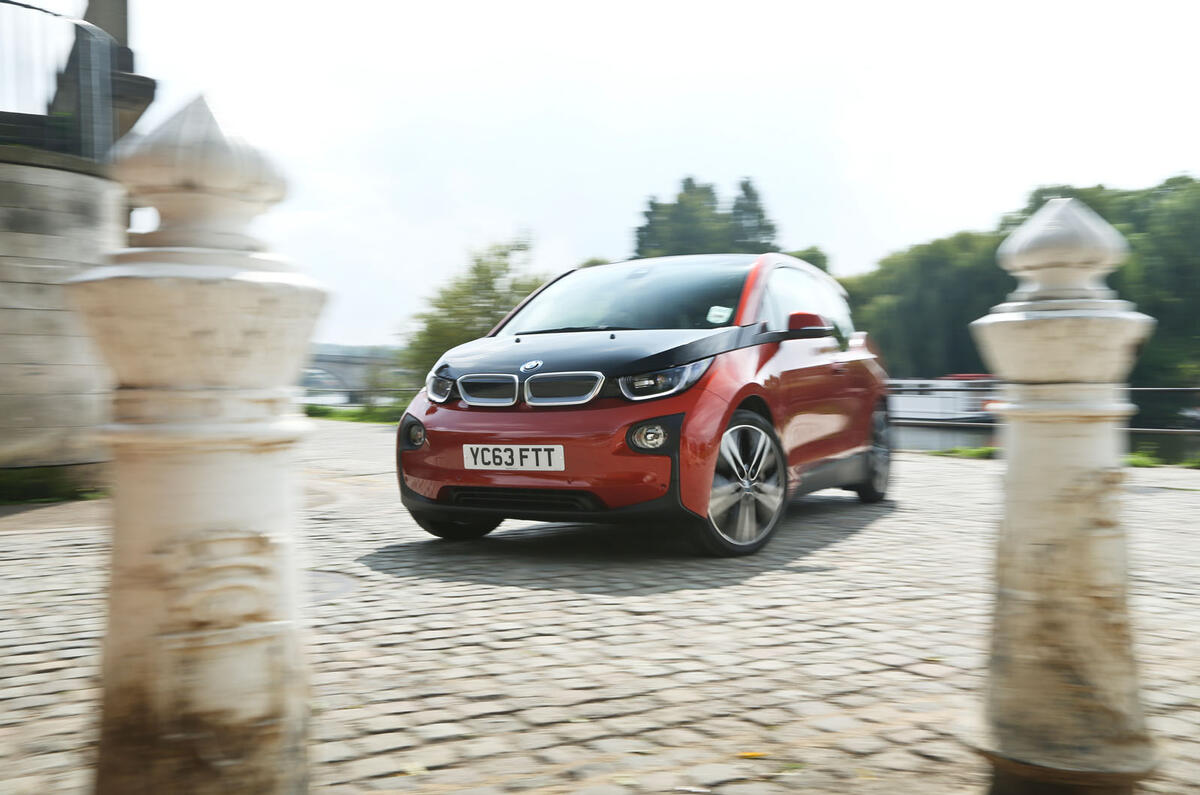
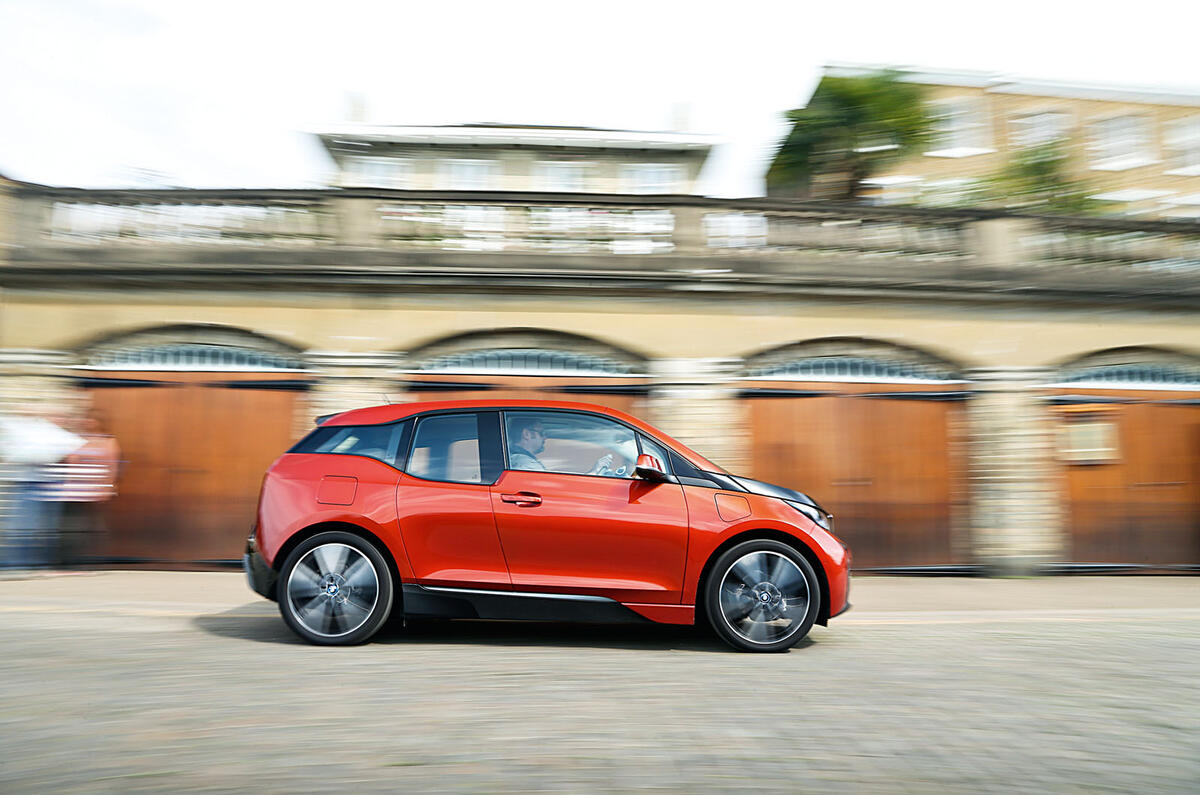
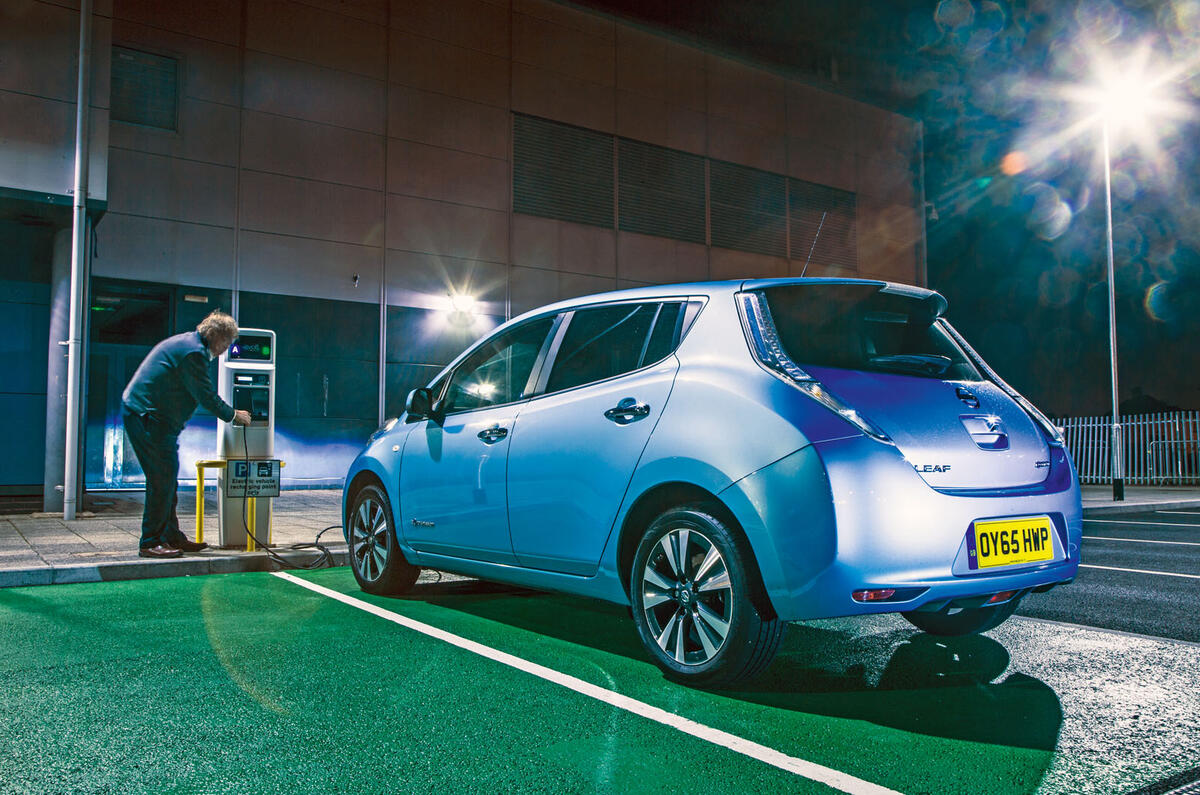
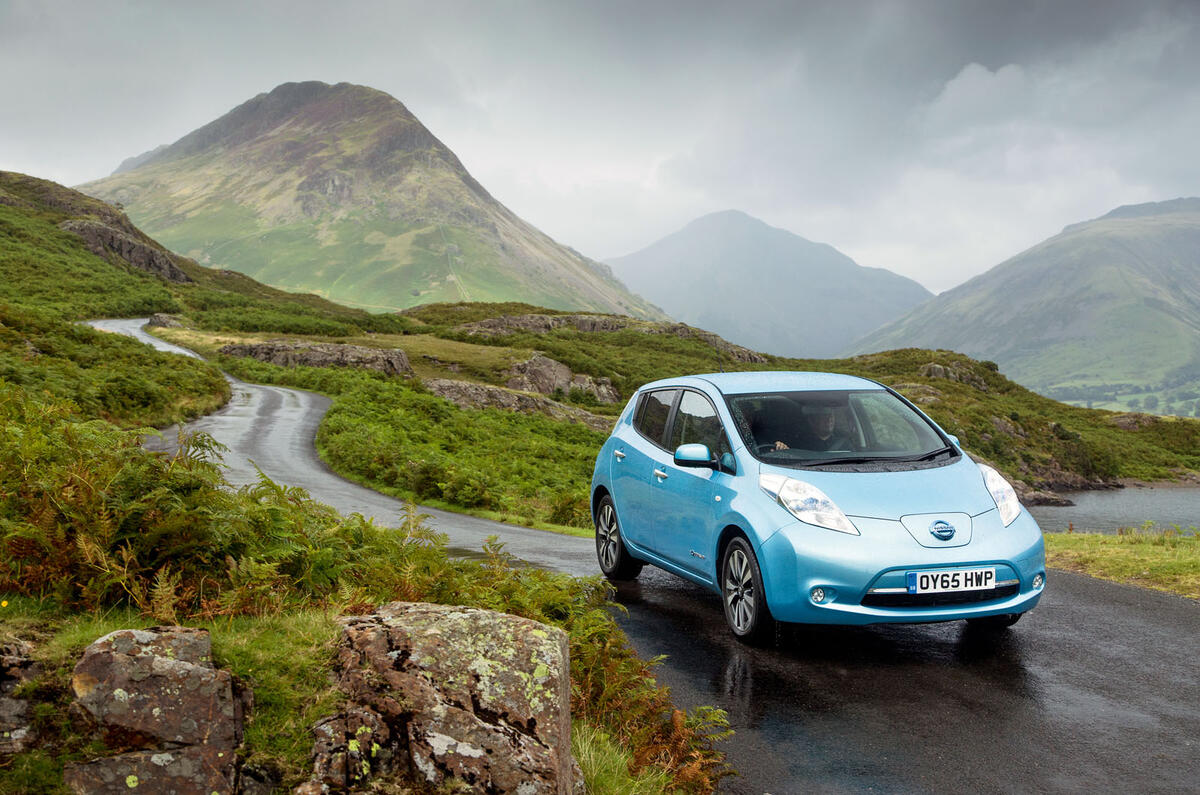
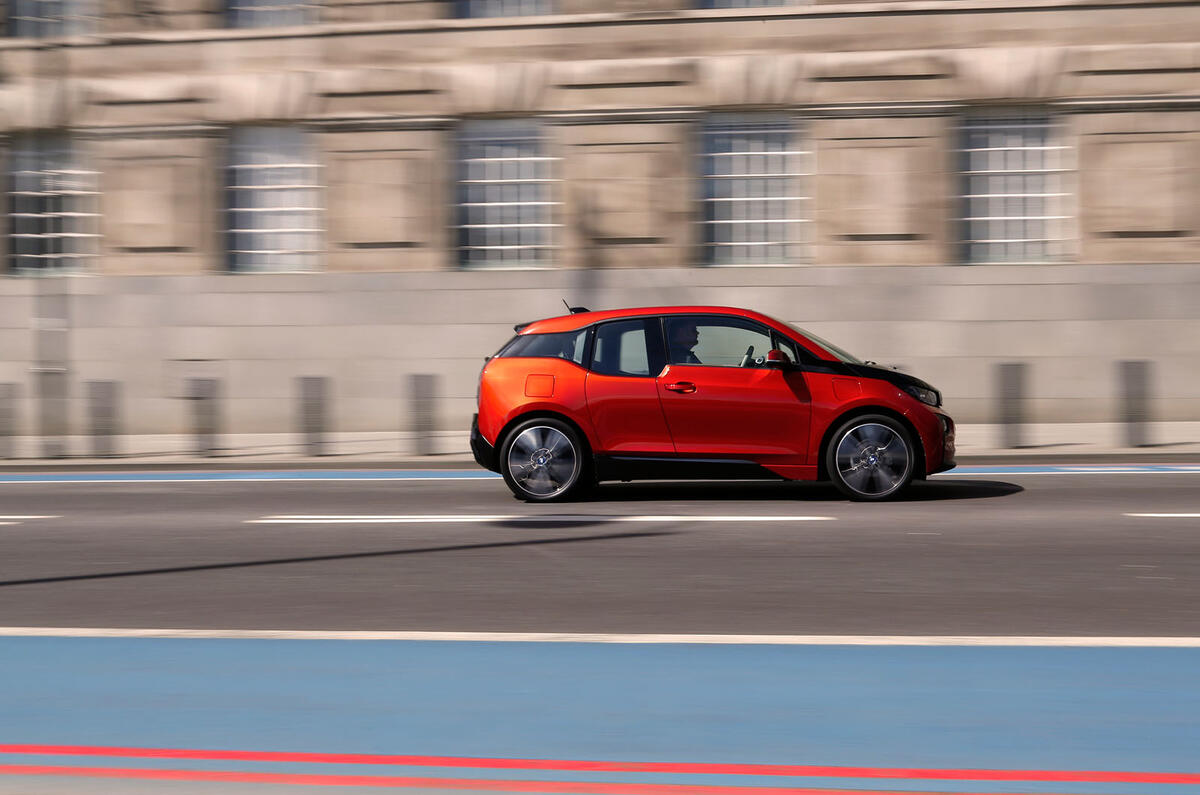
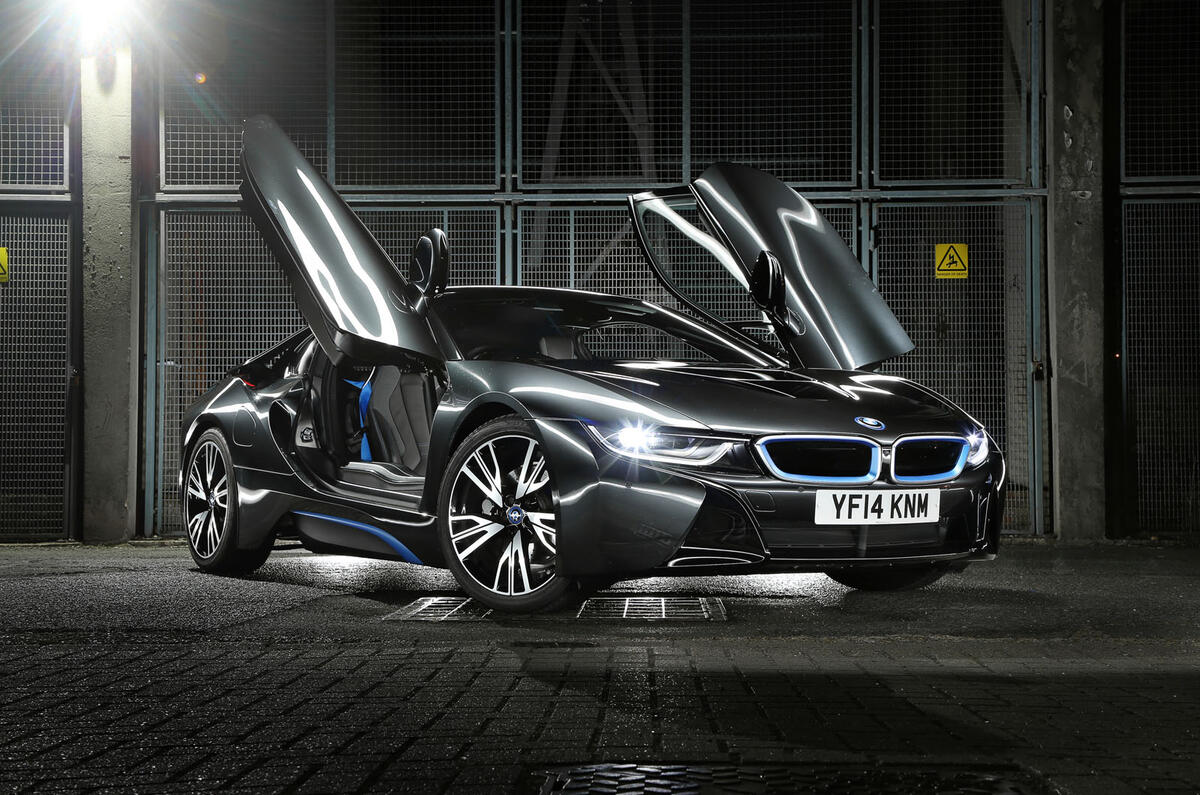
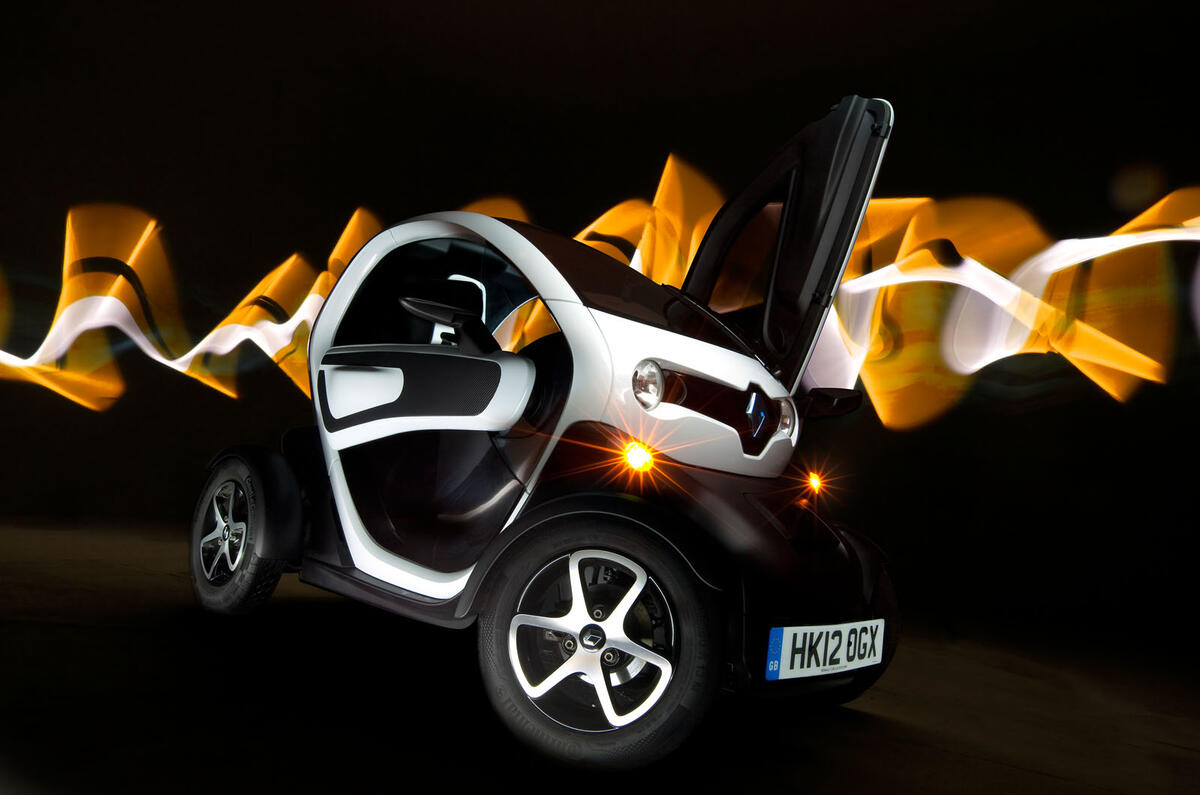
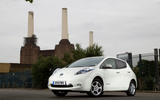
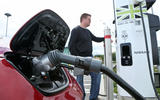


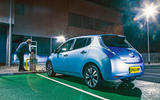





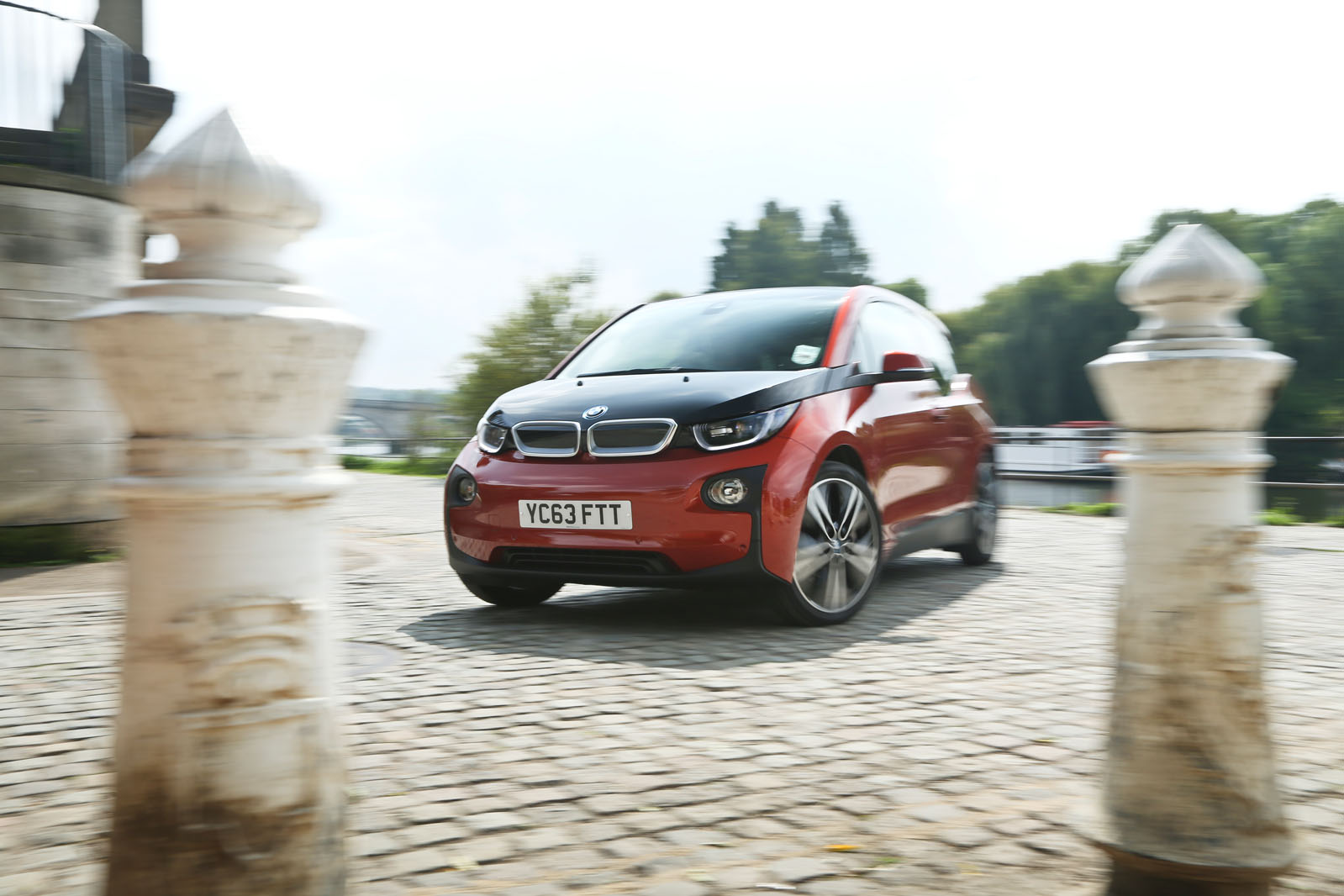

Join the debate
Add your comment
Fact checking
For Nissan Leafs, the battery rental option is called Flex, not the other way round. Looking at the used ads it seems that very few Flex versions are on the second hand market - they all seem to have the magic words 'battery owned not leased'. Even Renault, who championed the idea of battery leasing, have had to introduce outright battery purchase.
You don't have to have a charge point installed. Apart from Teslas, pretty well all EVs currently on the second hand market can be charged from a normal domestic 13A socket as long as your wiring is in reasonable condition. It may take a little longer but it still works.
Batteries will die eventually. If you take the Leaf as the effective first mass-market vehicle, then the oldest examples in the UK are about 6 years old now. There's one on eBay right now which still has 12 bars on its battery, meaning that it's got better than 85% of the original capacity. What people are betting on is that by the time they need a new battery, the cost of replacing one (on exchange - remember that the cells in the battery can be recycled for domestic storage) will be low enough to make it worthwhile. There are already a couple of independents specialising in EV battery repair, and as EV numbers grow more independents will start up. Nissan are supposed to have had to slow their domestic storage battery plans because they simply aren't getting enough batteries back to recycle.
Battery chargers are cheaper.
A standard 3 pin UK plug lead for a Renault Zoé is over £500 and charge time using it would be around 11 hours!
It should also be noted that you can buy a battery lease on a 2nd hand EV too. If you are covering low mileage monthly you can get a lease for £49/month as long as you don't exceed 4500 miles a year. If the battery full charge falls below 75% the lease will replace it. The battery lease (Renault) also includes AA membership which covers if you inadvertently run out of charge - the AA will either charge your battery or tow you to a charge point.
Battery chargers are cheaper.
A standard 3 pin UK plug lead for a Renault Zoé is over £500 and charge time using it would be around 11 hours!
It should also be noted that you can buy a battery lease on a 2nd hand EV too. If you are covering low mileage monthly you can get a lease for £49/month as long as you don't exceed 4500 miles a year. If the battery full charge falls below 75% the lease will replace it. The battery lease (Renault) also includes AA membership which covers if you inadvertently run out of charge - the AA will either charge your battery or tow you to a charge point.
Money where mouth is
xxxx wrote:
Still peddling this four x bullshit about the cost of running silly electric cars. If what you say were true, and people switched in huge numbers, the government would transfer all of the tax onto the electricity and a charge would cost the same as a tank of fuel because they certainly won't be losing that money.
Likewise the congestion charge, because they aren't any smaller than real cars, they cause the same length of queues and if in use in large numbers would attract the same charge so as to try and keep people from driving into London(and any other cities which introduce one).
And so being as the cost is the same people may as well stick to petrol, since they'd have to keep a second petrol car anyhow for going long distances or into wilder areas. Hiring would cost as much as the second car would and add even more inconvenience to the impracticality of electric ownership. Some day something may come along which is better than a petrol car, but it sure as hell isn't here yet, and electricity will never be that. Electric cars are going nowhere.
Put your money where your mouth is